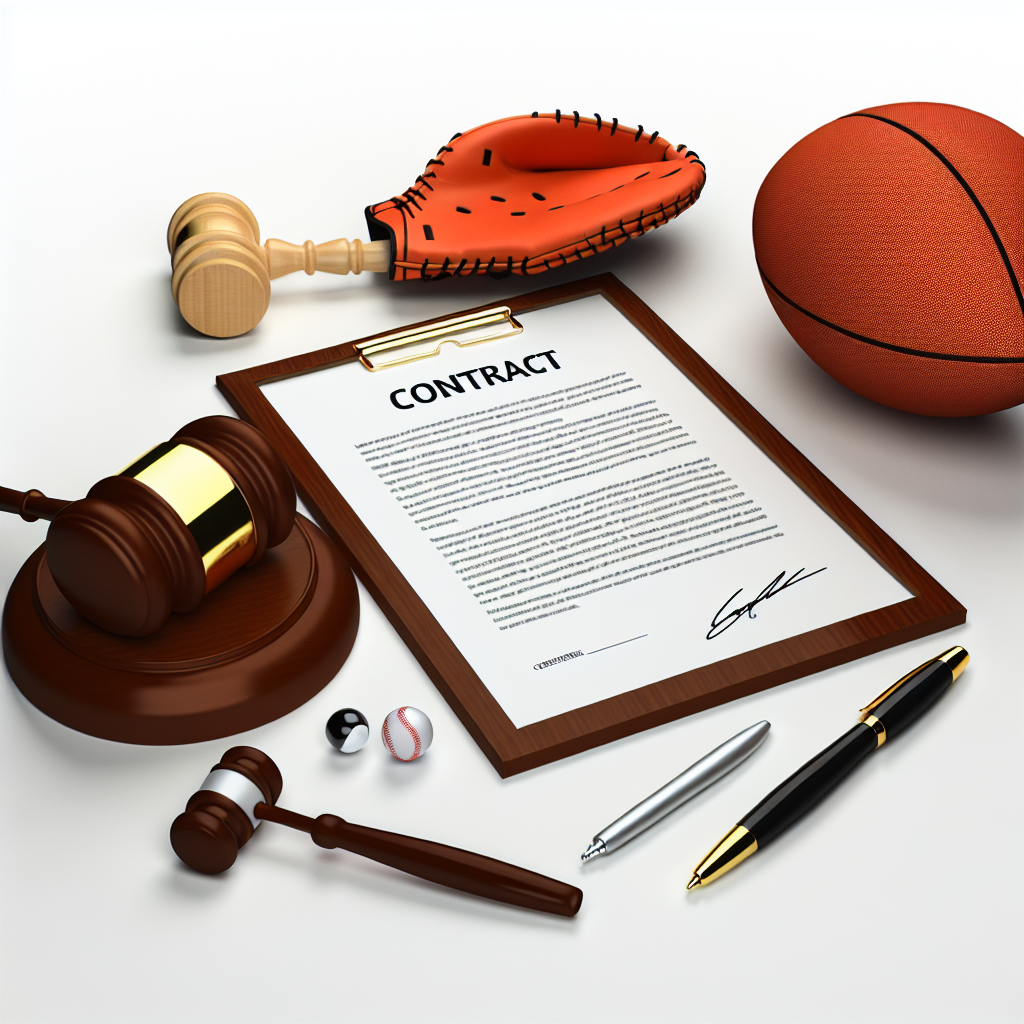
Athlete Contracts: Legal Considerations for Professional Sports
Introduction to Athlete Contracts
In the dynamic world of professional sports, athlete contracts serve as the bedrock of the relationship between athletes, teams, and sponsors. Understanding the intricacies of these contracts is essential for all stakeholders involved. This article explores the legal considerations surrounding athlete contracts, providing insights into compliance, ethics, and regulatory frameworks that govern the sports industry. As a trusted advisor in navigating these complexities, The Consultant Global is here to guide clients through their unique challenges.
The Importance of Athlete Contracts
Athlete contracts lay the foundation for the business of sports. They outline the rights and responsibilities of the athlete, the team, and other involved parties. A well-drafted contract is critical not only for protecting the interests of both athletes and franchises but also for fostering professional relationships that contribute to the sport’s integrity.
Key Components of Athlete Contracts
- Compensation and Payment Terms: Details of salary, bonuses, and any performance incentives.
- Duration: The length of the contract and any provisions for renewal.
- Exclusivity Clauses: Terms that prevent athletes from engaging with competing entities.
- Release Clauses: Conditions under which the athlete or team may terminate the contract.
- Nondisclosure and Nonsolicitation Agreements: Confidentiality clauses that protect sensitive information.
- Dispute Resolution: Procedures for resolving conflicts should they arise.
Legal Framework Governing Athlete Contracts
In the U.S., the landscape governing athlete contracts is shaped by various legal frameworks, notably labor law and contract law. Professional sports leagues often have their own collective bargaining agreements, which stipulate the terms of employment for athletes.
U.S. Regulations
In the United States, contracts must adhere to federal and state laws. The National Labor Relations Act (NLRA), for example, protects the rights of employees, while the Fair Labor Standards Act (FLSA) governs minimum wage and overtime pay. Compliance with these and other regulations is vital to ensure contracts are enforceable and protect the interests of all parties.
U.K. Regulations and Considerations
The legal landscape in the U.K. also addresses athlete contracts through various regulations. The Employment Rights Act 1996 provides rights to employees, while the Sports Governance Code emphasizes ethical practices within sporting organizations. Similar to the U.S., any contract must comply with local laws to be enforceable.
Comparative Perspective: UAE Laws
In the UAE, the sport’s regulatory environment is rapidly evolving, with an increasing emphasis on compliance and transparency. Local laws, including the UAE Federal Law No. 8 of 1980 (Commercial Companies Law), govern contractual relationships in the sports sector. Given the multi-cultural dynamics of UAE, contracts should also incorporate principles that respect local customs and practices.
Compliance and Ethical Considerations
Compliance in professional sports goes beyond mere adherence to laws; it involves the ethical responsibilities to athletes, organizations, and society at large. This includes promoting fairness, transparency, and accountability within all business dealings.
Addressing Compliance Issues
Contractual non-compliance can lead to significant legal repercussions, including litigation or loss of sponsorship. Organizations must establish strong compliance programs to ensure that contracts are executed in line with legal standards and ethical norms. This includes regular training sessions, risk assessments, and periodic audits of contract management processes.
Culture of Ethical Practices
A compelling culture of ethics within sports organizations encourages fair play and integrity. It enhances the trust between stakeholders and promotes a positive environment for athletes. Professional advice from The Consultant Global can help organizations build and maintain such a culture, benefiting both teams and athletes alike.
Negotiating Athlete Contracts
The negotiation of athlete contracts is a complex process that requires skilled negotiation techniques and an understanding of the sports landscape.
Preparing for Negotiations
Before negotiations start, both sides should conduct thorough research. This includes understanding market rates, prevailing practices, and the athlete’s value proposition. Preparation also involves evaluating competitors’ contracts and forming a strategy that aligns with the athlete’s career goals.
The Role of Agents
Agents play a critical role in negotiating contracts on behalf of athletes. Their expertise and market knowledge can lead to favorable terms and conditions. It is essential for athletes to choose agents who not only possess industry know-how but also uphold ethical standards in their dealings.
Risk Management in Athlete Contracts
Managing risks associated with athlete contracts is vital for protecting both the athlete’s and organization’s interests. Common risks include injuries, performance issues, and legal disputes. Proactive risk management strategies can mitigate these issues.
Injury and Performance Clauses
Contracts should include clauses that address potential injuries and performance-related risks. This ensures that athletes are protected during unforeseen circumstances, while also providing teams with the security needed to make responsible business decisions.
Litigation Risks
Contracts should outline clear processes for resolving disputes to minimize litigation risks. Including mediation and arbitration clauses can facilitate quicker resolutions, preserving relationships and protecting reputations.
Conclusion
Understanding athlete contracts and their legal considerations is crucial for all stakeholders within the sports industry. As the landscape continues to evolve, organizations must adopt a proactive approach in managing compliance, ethics, and negotiations. The Consultant Global stands ready to support organizations and athletes navigate these complexities effectively. With our extensive expertise and commitment to providing top-tier consultancy services, we help clients turn potential challenges into opportunities. By fostering trust and encouraging a culture of ethical practices, we empower businesses to achieve their strategic goals in the competitive world of professional sports.




Leave a Reply